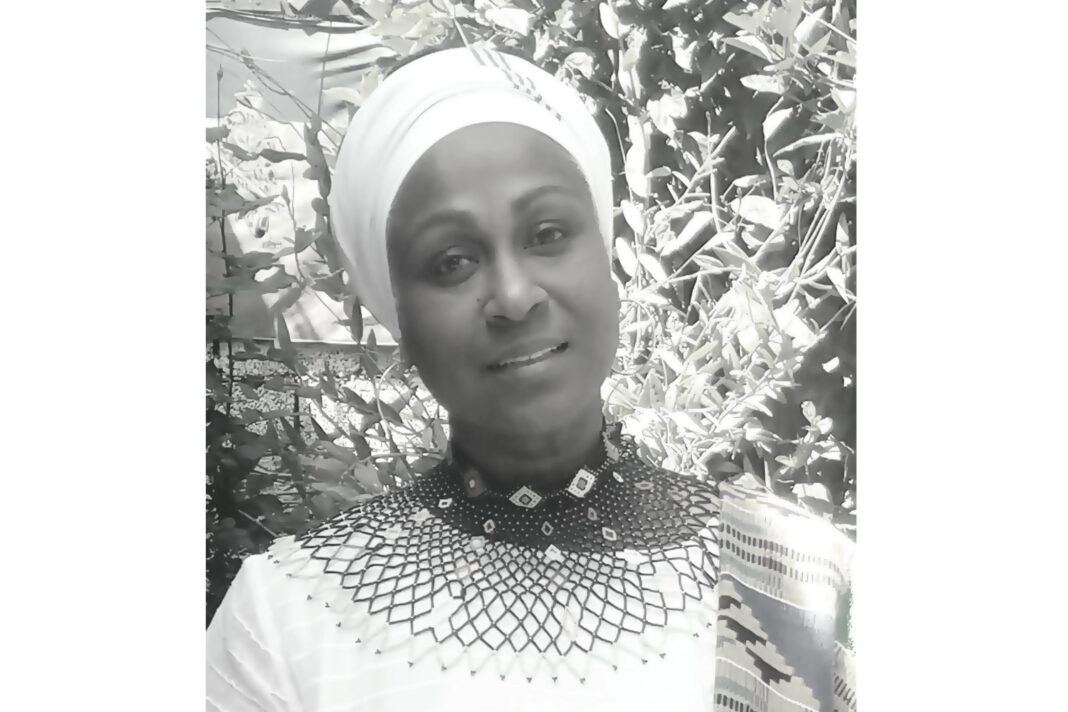A device’s original Operating System (OS) may be likened to African Indigenous Knowledge Systems (AIKS). Rebooting AIKS ignites traditional skills, intellect and values honed by the ancestors. It is the foundation of the relationships and rules with environs focusing on natural societal needs such as water, health, sanitation and agriculture. Validation and integration of these traditions in cooperation with Appropriate Technology Development (ATD) and socio-cultural consciousness create African appropriate solutions. In this case, Afrofuturism comes to mind. African-American millennial, Taylor Crumpton writes in Architectural Digest, “Afrofuturism is a fluid ideology shaped by generations of artists, musicians, scholars, and activists… reconstruct(ing) “Blackness”… (it) is a cultural blueprint to guide society. …birthed in the minds of enslaved Africans who prayed for their own and their descendants lives along the horrific Middle Passage. The first Afrofuturists envisioned a society free from the bondages of oppression … evaluat(ing) the past and future to create better conditions for the present generation of Black people through the use of technology, presented through art, music, and literature.”
Though contextualized in a contemporary manner, the ancient land of Abyssinia can be considered a posterchild for Afrofuturism. Colonial machinations couldn’t hault Ethiopian feats nor future such as the 4th century Axum obelisks or the 21st century Blue Nile River – Grand Ethiopian Renaissance Dam (GERD). The magnificent seven-story 80FT/25M high towers, hand hewn from graphite, prove the advanced artistry, architecture and technical prowess existing to create reliefs of false windows and doors with locks marking underground burial chambers, signifying power and social status. GERD’s 5,000-megawatt electricity capacity may also be seen as an Afrofuturistic blueprint for better conditions, benefitting a new generation and neighboring countries alike. Flow regulation, agricultural advances, water conservation and the creation of bridges will help redefine Ethiopia’s posterity, through ATD while addressing natural needs, just the as ancestors did.
Ingenuity and creativity are also echoed through African music. Dr. Mulatu Astatke declares indigenous people as ‘Scientists of Sound’ creators of wind, string and percussion instruments, reflecting nature’s harmonies. He notes the mid 20th century African-American avantgarde jazz man, Sun Ra aka the God Father of Afrofuturism whose sounds are interstellar yet close to indigenous music. “He is EPIC, lost in space and transporting the African-American population to another planet—very Moses and exodus vibes…”, according to Vice’s Daryoush Haj-Najafi. The music matched his metallic space suits, colorful capes and hats accessorized with huge African-centric jewelry. He positioned himself and Black People in the future saying, “I am not part of their his-story, I am part of the mystery, which is my story.”
Benin artist, Emo de Medierois, shares the sentiment. An Afrofuturistic visual artist traversing techniques, textures and time; he questions Africa’s future, addressing perpetrators and perpetuators of colonialism, equally. His 2015 exhibition in Pavillion Du Benin at Venice Biennale was provocative. He says, “(My) piece was an ironic political commentary about the clandestine African vendors figure’s absence in the works presented at the biennale, despite their highly visible presence in touristic towns in Italy… the economic and symbolic power balance that makes the presence of national pavilions of African countries difficult, and the controversy regarding the Kenyan Pavilion where most of the artists presented were Chinese.” This practice has driven the future of African art inward, creating continental fairs such as Nigeria’s Art X Lagos and Biennale de Dakar, Senegal and Biennale Luanda, Angola. Post pandemic, the spirit of Afrofuturism is becoming more and more normalized, akin to a software staple.
Reclaiming and recontextualizing Africa’s legacy and destiny is also accomplished through architecture. Togolese architect, artist and designer, Olalekan Jeyifous, states “We had to draw on our past and our traditions – from the music, food, clothing… systems of behaviour and mannerisms…education, it was all completely new… .” Olalekan creates “Shanty megastructures, mobile hover farms, upcycled salvaged breathing devices…” familiar to the fantastic futuristic African homestead, Wakanda, in Black Panther the film and catalyst for 21st century Pan African pride grossing over $1.4B, but that’s another story. Collaborations of African Indigenous Knowledge Systems with Appropriate Technology Development provide culturally relative solutions for the Continent. And as best practices are shared and strategies developed for movement of people, goods and services across 55 countries through the African Continental Free Trade Area, the future envisioned by the OAU Founding Fathers and Agenda 2063 will be realized.
The thirty-two signatory African governments gathered in Addis Abebe, May 25 1963, and were warmly welcomed by Elder Statesman, HIM Emperor Haile Selassie I. He cautioned his African comrades however, “There are (those) whose hopes for Africa are bright, who stand with faces upturned in wonder and awe at the creation of a new and happier life, who have dedicated themselves to its realization… spurred by example of their brothers to whom they owe the achievements of Africa’s past. What we require is a single African organization through which Africa’s single voice may be heard, within which Africa’s problems may be studied and resolved. The nations of Africa…from time to time dispute among themselves. These quarrels must be confined to this continent and quarantined from the contamination of non-African interference.” Afrofuturism is naturally Pan African with diplomatic remedies able to reset and serve global-kind, as what is good for Africa is good for all humanity.
Dr. Desta Meghoo is a Jamaican born Creative Consultant, Curator and cultural promoter based in Ethiopia since 2005. She also serves as Liaison to the AU for the Ghana based, Diaspora African Forum.





